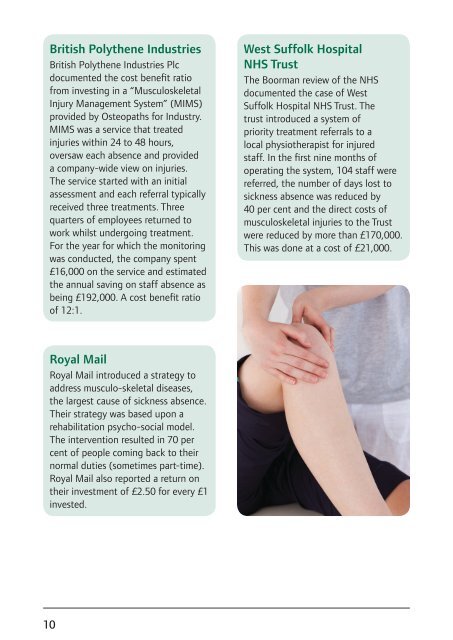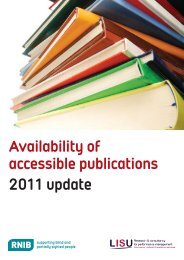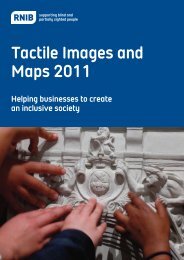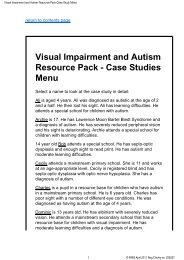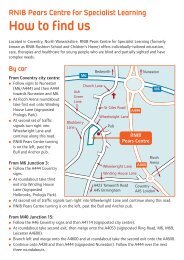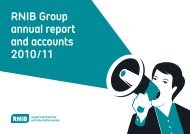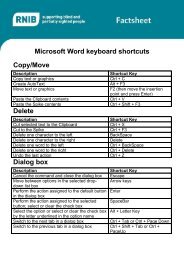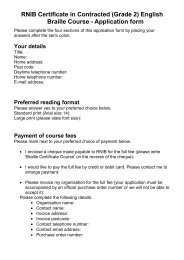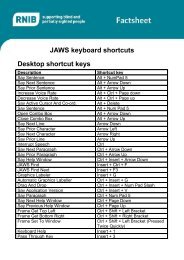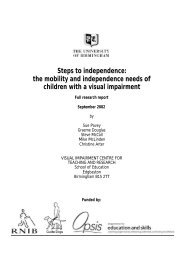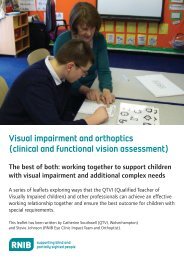Vocational rehabilitation: The business case for retaining ... - RNIB
Vocational rehabilitation: The business case for retaining ... - RNIB
Vocational rehabilitation: The business case for retaining ... - RNIB
Create successful ePaper yourself
Turn your PDF publications into a flip-book with our unique Google optimized e-Paper software.
British Polythene Industries<br />
British Polythene Industries Plc<br />
documented the cost benefit ratio<br />
from investing in a “Musculoskeletal<br />
Injury Management System” (MIMS)<br />
provided by Osteopaths <strong>for</strong> Industry.<br />
MIMS was a service that treated<br />
injuries within 24 to 48 hours,<br />
oversaw each absence and provided<br />
a company-wide view on injuries.<br />
<strong>The</strong> service started with an initial<br />
assessment and each referral typically<br />
received three treatments. Three<br />
quarters of employees returned to<br />
work whilst undergoing treatment.<br />
For the year <strong>for</strong> which the monitoring<br />
was conducted, the company spent<br />
£16,000 on the service and estimated<br />
the annual saving on staff absence as<br />
being £192,000. A cost benefit ratio<br />
of 12:1.<br />
West Suffolk Hospital<br />
NHS Trust<br />
<strong>The</strong> Boorman review of the NHS<br />
documented the <strong>case</strong> of West<br />
Suffolk Hospital NHS Trust. <strong>The</strong><br />
trust introduced a system of<br />
priority treatment referrals to a<br />
local physiotherapist <strong>for</strong> injured<br />
staff. In the first nine months of<br />
operating the system, 104 staff were<br />
referred, the number of days lost to<br />
sickness absence was reduced by<br />
40 per cent and the direct costs of<br />
musculoskeletal injuries to the Trust<br />
were reduced by more than £170,000.<br />
This was done at a cost of £21,000.<br />
Royal Mail<br />
Royal Mail introduced a strategy to<br />
address musculo-skeletal diseases,<br />
the largest cause of sickness absence.<br />
<strong>The</strong>ir strategy was based upon a<br />
<strong>rehabilitation</strong> psycho-social model.<br />
<strong>The</strong> intervention resulted in 70 per<br />
cent of people coming back to their<br />
normal duties (sometimes part-time).<br />
Royal Mail also reported a return on<br />
their investment of £2.50 <strong>for</strong> every £1<br />
invested.<br />
10


